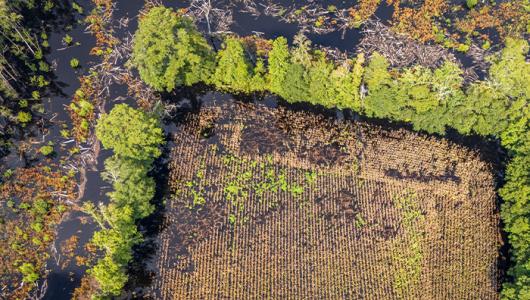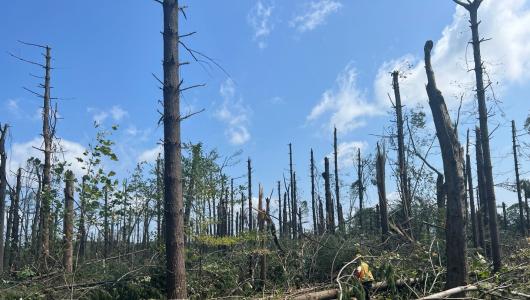We want to make Federal crop insurance available and accessible to all producers, especially those who have not traditionally had access. That’s why USDA’s Risk Management Agency (RMA) is investing in risk management education and working with partners and ambassadors to help us expand our reach.
Crop insurance can seem complicated sometimes, and that’s why RMA wants to provide resources to help producers get more familiar.
Since 2021, RMA has invested $13 million in risk management education for underserved and small-scale producers and other producers interested in organic and farm practices. This includes partnerships with a variety of entities, such as the Rural South Institute, which is helping producers in Alabama, Mississippi, and Georgia.
RMA also has ambassadors like Cindy Ayers-Elliott to help share why risk management tools are important to producers.
RMA’s partnership funding cycle opens at the beginning of each year to organizations, nonprofits, and land grant universities.
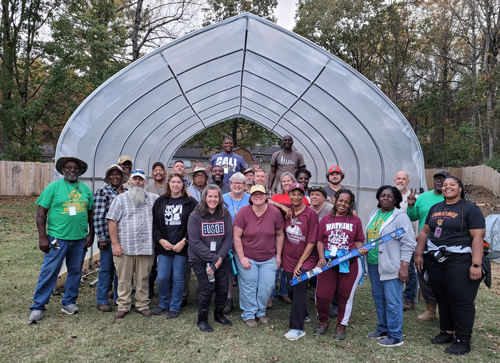
Rural South Institute
Based in Alabama, the Rural South Institute (RSI) is a non-profit organization with a mission to provide high-quality education, outreach, technical assistance, and training in all aspects of agribusiness.
RSI’s partnership focused on minority producers in areas of persistent poverty in Alabama, Georgia, and Mississippi. Trainings covered a wide range of topics including risk management options and how to access them, along with hosting on-farm demonstrations of conservation practices, including cover crops.
“Our outreach and trainings have been a catalyst for tearing down some of the barriers and challenges faced by many farmers of color to equitably access crop insurance,” said RSI Executive Director, Duncan Chembezi, Ph.D. One of those challenges is limited access to broadband internet. “Our workshops provided the information and resources needed for our participants to apply for USDA programs.”
Creating an awareness of RMA policies for limited resource and minority producers, like Whole Farm Revenue Protection and Micro Farm, were key to the success of RSI’s outreach. “We’ve seen an increase in interest in these policies and an enthusiasm among farmers of color to discuss crop insurance and other government programs,” said Chembezi. “Our partnership with RMA made this possible.”
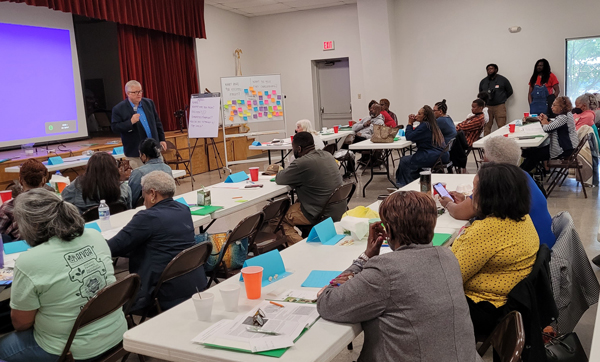
In addition to partnerships, like the one with RSI, RMA launched the Ambassador Pilot Program, an outreach effort developed to strengthen RMA’s engagement within underserved agricultural communities.
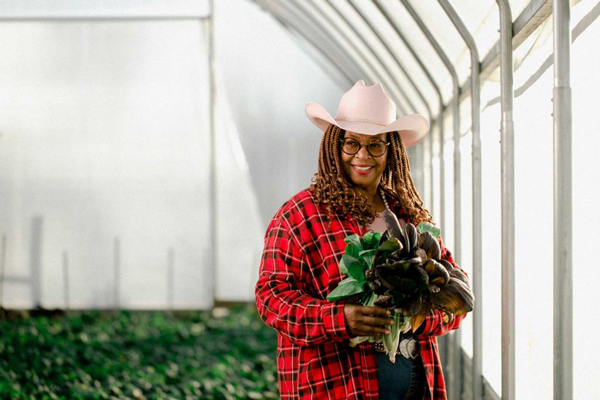
Meet Cindy Ayers – Elliott, Ph.D., RMA’s First Ambassador
A native of Mississippi, Cindy Ayers-Elliott, Ph.D., is well known as the “go to” resource when it comes to teaching and mentoring community members interested in entering the world of agriculture. She was also recently named the first RMA Ambassador, a title she happily embraces.
As a successful farmer and former investment banker on Wall Street, Elliott is no stranger to hard work and long hours. She is knowledgeable and passionate about agriculture and looks for ways to share her passion with others. For many years, she used her own farm as a training ground to teach community members, especially single mothers and the socially or economically disadvantaged, about all aspects of farming.
In her role as Ambassador, a new RMA pilot program, Elliott will travel to conferences and outreach events, speaking about the importance of risk management. She is looking forward to the work ahead, “Teaching about risk management options for small and medium farmers and how they can gain financial security is so important to me.” Elliott’s outreach efforts will focus on the southeast, from Texas to Virginia and all points in-between.
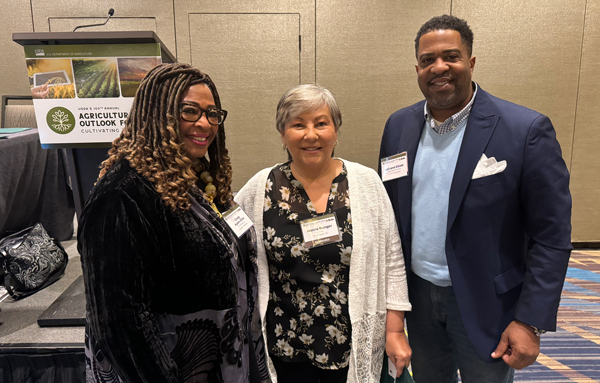
Teaching farmers of different ethnicities, backgrounds, and experiences is paramount to Elliott. “Improving access to risk management options is like planting seeds that will one day yield a harvest of strong farmers.”
The deadline to apply for 2024 partnership funding is March 4. Organizations interested in applying can learn more, access helpful resources, and view a list of previous partnerships by visiting RMA Outreach and Education or e-mailing rma.risk.ed@usda.gov.
Producers interested in learning more about risk management options and how to purchase crop insurance are encouraged to reach out to a local crop insurance agent.
Kameka Gray is an Outreach Specialist at USDA's Risk Management Agency

